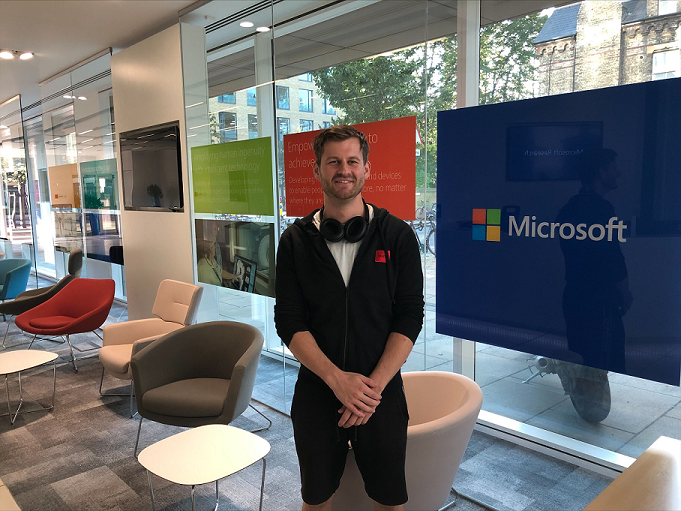From Microsoft to MERL with Hubert Dzieciol
TRANSNET PhD student, Hubert Dzieciol from UCL’s Optical Networks Group, took a break from his research studies to spend the second half of the year completing a double internship at Microsoft and (Cambridge, UK) MERL (Cambridge, USA). Here, he tells us a bit more.
When did you start your internships?
I started at Microsoft in 2021, which was initially for a 12-week period but a couple of weeks in I received an offer to extend my term to mid-September, which I accepted. Once I finished at Microsoft, I started a research consultancy internship with Mitsubishi Electric Research Labs (MERL) which is where I am right now (working remotely).
What is the difference between working in industry and PhD life?
Industry has a much higher emphasis on the practicality of the engineered idea compared to academia. At university, we are trying to generate new knowledge and push scientific boundaries, often with less regard to cost and complexity. It is fun and exciting to be a pioneer but our research and ideas might not always be economically feasible.
Industry focuses more on finding the range of optimal parameters for an idea to be commercialised and manufactured on a large scale, although there is a lot of effort to understand the latest, state-of-the-art research too, of course.
Can you tell us what you have been working on at Microsoft and MERL?
I have been working on machine learning for optical communications. Unfortunately, that is all I can say now. (We, however, are allowed to show the below image of Hubert interning at the Microsoft Research offices in Cambridge).

How do you think your time at Microsoft and MERL will benefit your research?
Both internships have been a great opportunity to gain valuable work experience and exposure related to the industrial side of research. Working amongst a multidisciplinary team – where not everyone has an optical communications background – has taught me some good best practices when it comes to the organisation and presentation of my work which I will definitely apply to my future PhD research.
About Hubert’s research
Hubert’s work focuses on investigating whether ultra-fast optical switching in combination with coherent detection and simplified digital signal processing will be an enabling technology for the continued scaling of data centre network bandwidth.
His PhD is part of the TRANSNET Programme in collaboration with Microsoft Research in Cambridge, under the supervision of TRANSNET director Professor Polina Bayvel.
So far, Hubert has achieved three first-author papers as part of his PhD: two journal papers in Journal of Lightwave Technology and a contributed conference paper to IEEE SUM 2020 – details below.
- The Partially-Coherent AWGN Channel: Transceiver Strategies for Low-Complexity Fibre Links
- Geometric Shaping of 2-D Constellations in the Presence of Laser Phase Noise
- Extending Phase Noise Tolerance in UDWDM Access Networks
Hubert has been a member of the TRANSNET Programme since 2018. He re-joins the team in early 2022, we look forward to seeing him then!